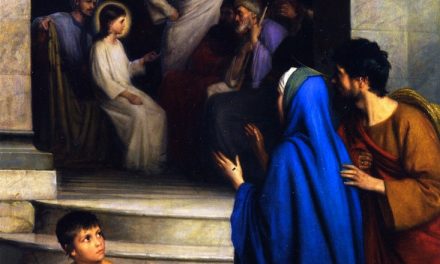I encounter a lot of people, some highly-educated and some not who simply do not read fiction. One guy I spoke with recently dismissed time spent reading literature with playing video games—a total waste of time, valuable only for entertainment. I meet others who say that with how little time they have, they will only read non-fiction, which is “truly worthwhile.” I think this view is really misguided. I want to make a case why reading fiction, particularly really excellent literature, should have a more prized place in your daily schedule, particularly as it relates to the moral life.
1. Literature helps us better understand the human condition: I recently read A Little Life by Hanya Yanigahara, a Man Booker nominee for 2016. The book explores (among other things) the complicated relationship between pedophiles and their victims, as well as the difficulty of discovering you have dignity after a life of abuse. I understand fallenness and shame so much better for after reading this novel. But I also understand the paradoxical nature of the human condition better. The book explores how a person can be strong and confident in one setting, and yet tolerant, even desirous of abuse in another, both in an attempt to deal with shame. These are things that I could unpack over lots of time, though, and research in a non-fiction form, but in literature form, it is almost as if this knowledge is acquired connaturally.
2. Literature is beautiful. Certainly not all fiction is beautiful, but good literature is. And a soul exposed to beauty only craves more beauty. Literature makes the soul more discerning in choosing beauty over lesser goods. A good book with really compelling characters, complex themes, a great sense of place, and gorgeous prose makes you crave more of where that came from. You are less likely to waste an hour mindlessly flipping through Pinterest or Facebook if you have a really good book waiting.
3. Literature takes you places. I live a pretty static life right now. I quit my job a few years ago to raise kids and my kids are still really little. We are a one car family in a middling Iowa town. To say that I don’t get out much is an understatement. And yet, literature takes me places. It keeps me from becoming provincial. This is important for moral formation because provincialism tends towards making us small-minded. A person with a wider sense of place than just here is likely to be more empathetic, tolerant, curious, compassionate, and patient, all important virtues in a cosmopolitan world.
4. Literature gives us exemplars (and their foils!). Great literature gives us people we want to be. As a child, I wanted to be Anne of Green Gables or Jo March. I loved their passion and courage and willingness to challenge convention. But even as an adult, I find myself modeling my own life goals after the exemplars I encounter in books. At the same time, I also see in literature what I don’t want to be. And while we can certainly find such exemplars in real life (and their opposites), literature gives us so many more choices to model our lives after, especially for the mid-town Iowa girl that I have become.
5. We are made for stories. We are storied beings. From the first cave paintings to the ancient myths to the medieval romance to today, human beings have told stories to help us understand who we are and what we are meant for, to guide us to a fuller sense of our humanity, to carve out our identity. One of my very favorite introductory texts to moral theology uses a work of fiction in each chapter to illuminate the point, to teach us to see the point in question (human longing, sin, redemption, virtue). These stories, while fiction, point to deeper truths than can be encapsulated by any non-fiction genre. And so, in a sense, even though I think people should intentionally seek out great fiction as part of a comprehensive moral existence, I really think there is no way around the stories that make us who we are. But with a mind attuned to read and comprehend great literature, we will in fact be more discerning about the stories that we make our own.





When I was young I wasn’t as wise as you and fell in to the trap of thinking only non-fiction was worthwhile. Luckily I’ve since learned that fiction can tell us more about the truth than facts can, so your post is applauded.
My favorite example is the movie “All That Jazz” a very creative and entertaining Broadway song and dance musical (by Bob Fosse) about life and death. No book of philosophy can touch this great work of art.
A downside to this insight about the value of art for those of us who love to write, but can’t write fiction, is to come to know ourselves as second class citizens in the world of words. Oh well, that’s ok, we can be grateful that someone knows how to create great art, even if we don’t.